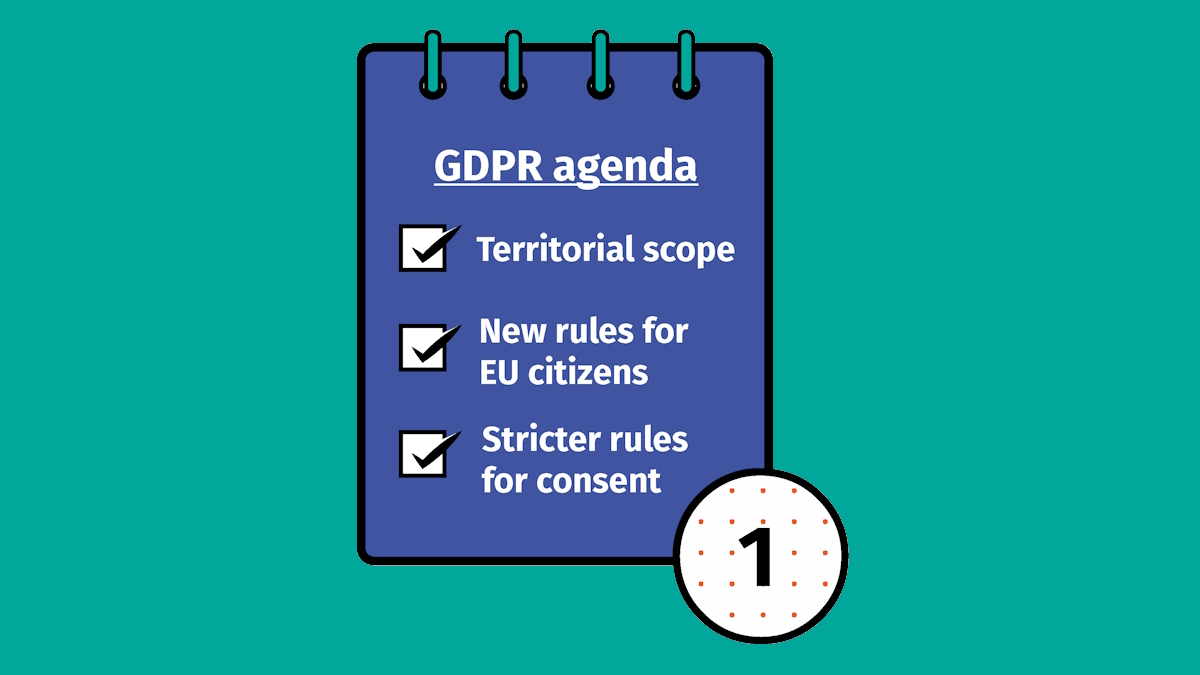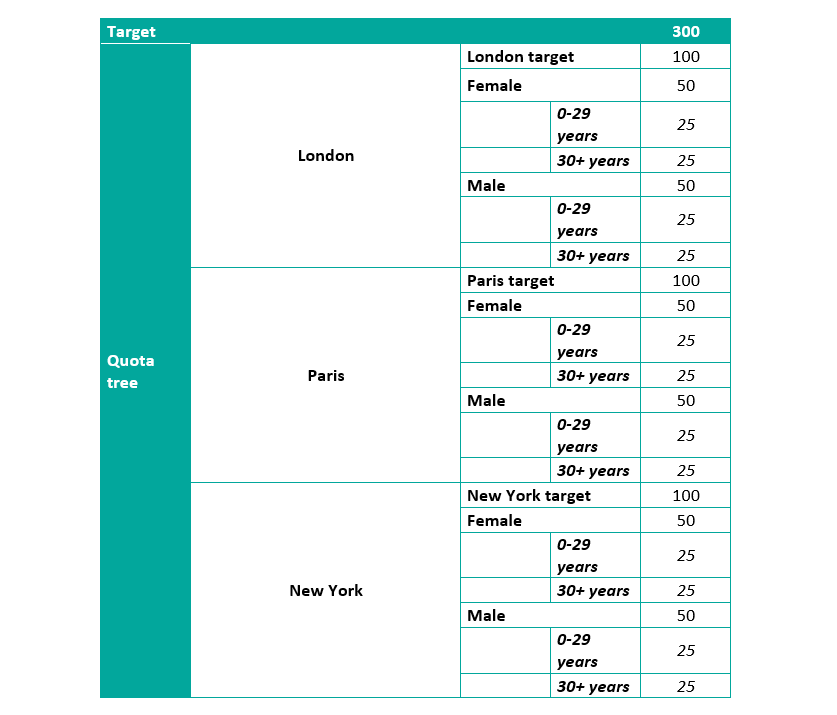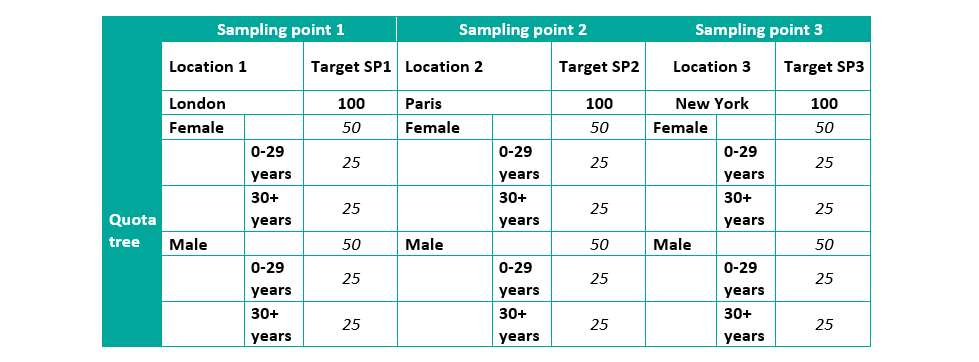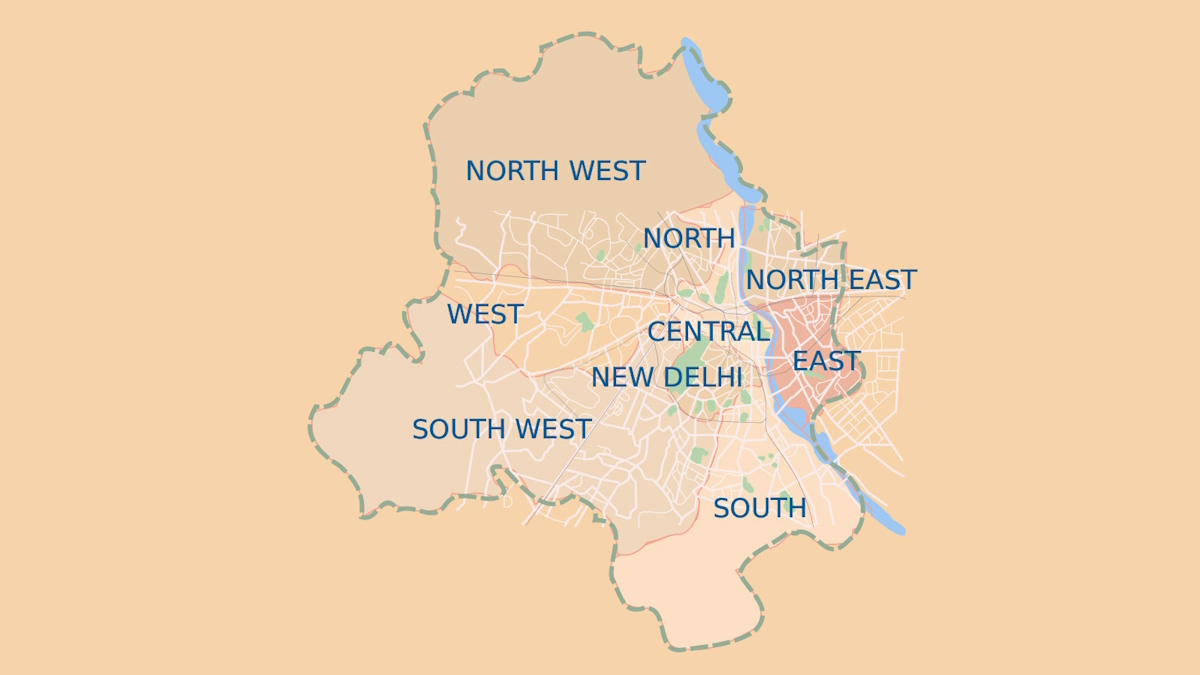
Get a first impression, scheduled soon.
Request a demo to see how NIPO can help you meet your requirements with our smart survey solutions.
The General Data Protection Regulation (GDPR) comes with strong implications for all kinds of industries, and the market research industry is no exception. Since personal data collection is an essential part of many research projects, professional researchers and their survey software providers need to get prepared for the significant changes that are about to come. NIPO is convinced of the importance of GDPR compliance. Accordingly, we want to make sure that the NIPO organization and the Nfield platform are GDPR compliant. This is an important benefit for our customers, however, on their part, they will also have to make sure their organization and services are compliant. In order to help customers with this, NIPO will share information about GDPR and provide advice. We will also keep our customers updated on how we are working to be GDPR compliant. The GDPR becomes enforceable from 25 May 2018 after a two-year transition period, so get ready and read the most important GDPR information we selected especially for you. More Blogs will follow in the near future.
GDPR is a new piece of regulation which will become law across the EU in May 2018. It replaces the 1995 EU Data Protection Directive. The aim of GDPR is to protect the fundamental rights and freedoms of all EU citizens, in particular, their right to the protection of personal data. It is a response to the public outcry over privacy and a common practice when some companies swap access to personal data for use of their services.
As a result, GDPR has been designed to give people more control over how their personal data is used and introduces tougher fines for non-compliance and breaches. It also makes data protection rules more or less identical throughout the EU.
GDPR applies to any company that collects data from EU citizens regardless of the company’s location and country of origin. Typically, you can then think about four business scenarios:
What matters is whether the company deals with data belonging to EU citizens.
GDPR defines two roles: controllers and processors.
A data controller determines the purpose (why) and means (how) of the processing, while a processor is responsible for doing the actual processing of the data on behalf of the controller. So the controller could be any organization, from a profit-seeking company to a charity or government. A processor could be for example an IT firm doing the actual data processing.
Both controllers and processors have a responsibility to abide by the rules provided in GDPR. What’s new is that GDPR places direct compliance obligations on data processors for the first time at EU-wide level. So, now data processors are subject to liability if they fail to comply with their contractual obligations (e.g. failure to report a data breach) to their controllers.
Before GDPR, the directive defined personal data as any information relating to an identified or identifiable natural person.
GDPR specifies and broadens the definition of personal data to include online identifiers (cookies, IP addresses etc.), genetic data (an individual’s gene sequence), biometric data (fingerprints, retinal scans etc.), location data (GPS etc.).
Other data, like economic, cultural or mental health information, are also considered personally identifiable information. Genetic and Biometric data are considered as Sensitive personal data under GDPR.
GDPR significantly toughens consent rules. Under GDPR, consent must be an active, specific, informed and unambiguous action taken by the EU citizen. This also means that the passive acceptance methods, such as pre-ticked boxes and opt-outs, are not allowed anymore. Also, controllers must keep a record of how and when an individual gave consent so that they can demonstrate exactly what and when someone agreed to.
Opt-out consent also known as giving consent by not declining to give consent, means that an individual is given the option to decline consent. If the individual does not clearly decline consent, consent is granted. Pre-ticked boxes are boxes pre-ticked by the company, which takes the active consent action away from the individual.
Ultimately, GDPR puts the control of personal data back into the hands of EU citizens by introducing a number of new rights that bolster their position. The new rights especially affect how controllers can process and keep people’s data.
It is the responsibility of the controller to inform the local data protection authority of any data breach that risks people’s rights and freedoms within 72 hours of the company becoming aware of it. Those who fail to meet the 72-hour deadline could face a penalty of up to €10 million or 2% of their global annual turnover, whichever is higher.
For violations related to the lawfulness of processing (consent, legitimate interest etc.), data subject rights, and cross-border transfers, the data protection authority could issue a penalty of up to €20 million or 4% of their global annual turnover, whichever is higher.
There are several questions companies need to ask and answer in order to begin the process of compliance with GDPR, below you will find some questions that need to be considered:
1. What is the relationship between my company and NIPO, are we controllers or processors?
In the relationship between your company and NIPO, your company is the controller and NIPO is the processor. This means your company determines what data needs to be collected, and the purpose of collecting the data, and then NIPO processes the data collected on the Nfield platform.
2. Does my company process personal data?
The first thing any company needs to know is whether or not it processes personal data. This is relevant in order for the company to identify what type of personal data it has, does it include sensitive data? where is the personal data stored? who has access to this data? is this data shared with third parties? do you transfer the data outside the EU? Knowing the answers to these questions will improve efficiency, and enable you to access the data and act on it quickly and reliably.
3. Which lawful basis for processing is used by my company?
GDPR provides several lawful bases (consent, legitimate interests etc.) for the processing of personal data. The company needs to identify which one it uses to process personal data. It is important to identify the lawful basis you use for processing because it has an effect on individual rights. For instance, if you rely on someone’s consent to process their data, they will generally have stronger rights (e.g. request to have their data deleted).
4. Does my company have any procedures in place to handle data subjects’ requests?
Is there a software already in place that allows data subject’s exercise their rights (e.g. right to be forgotten), is there a timesale to respond to data subject’s request (e.g. right of access)? Knowing if you already have procedures, will enable you to quickly respond to data subject’s requests, and if there aren’t any procedures in place, then you can begin to work on having new procedures.
5. Is my company prepared for a data breach?
In cases where there is a data breach, do you have mechanisms in place that detect data breaches? are there any processes in place to address data breaches? This is important because if you have mechanisms to detect data breaches, it allows you to address the breaches quickly and mitigate its possible adverse effects, where appropriate effectively.
This was the first of a series of blogs on GDPR becoming effective. Watch out for our regular updates. If you have any questions in the meantime, please get in contact with our Sales team by sending an email to sales@nipo.com
Disclaimer: This blog is made available by NIPO for the purposes of providing general information and a general understanding of GDPR, and should not be considered or used as a substitute for legal advice. NIPO does not accept any responsibility or liability for the accuracy, completeness, legality, or reliability of the information contained on this blog.

Cyber attacks are continuing to increase globally in both number and scale, impacting all kinds of organizations in all kinds of industries. Every company is a potential target. Which means market researchers need to be as aware as anyone about the possible threats and take the necessary preventative action. This calls for being armed with the relevant knowledge and having a system which robustly protects survey data and, with that, company reputation.
A single “NotPetya” ransomware attack in June 2017 led to Nurofen maker Reckitt Benckiser taking an estimated EUR 110 million hit in revenue*.
*source: the Guardian 6 July 2017
Just think about what would happen if your company falls victim to malware which compromises your entire fieldwork operation, causing irretrievable loss of your fieldwork and respondent data. Not to mention the damage done to your client relationships.
We did, which is why NIPO’s Nfield survey systems are designed to keep cyber attackers out. But optimal cyber security also depends on good human awareness of the threats, so people themselves do not become the vulnerable weak link. We therefore held a webinar about cyber security to educate our customers and help them protect their interests.
In this, NIPO explains why IT security in market research matters to you, provides guidance on what you can do to keep cyber attackers out and answers questions such as:
Find out more
For more details on how NIPO ensures cyber security in its solutions and business, see the Nfield security factsheet.
So what’s next?
If you would talk about whether your current solution meets the required security standards, then let us know. You can contact us at sales@nipo.com.

Sending interviewers to targeted locations requires specific distribution options within the software itself, all of which can be found within Nfield CAPI. Have you already heard about sampling points?
In face to face interviewing, we refer to sampling points when talking about survey distribution. So what are sampling points?
From a technical perspective, sampling points are a way of categorizing interviews into certain groups (points). Categories could literally be anything: streets, areas, cities, or even experienced interviewers in one sampling point and less experienced interviewers in another.
In practice, sampling points are commonly used for a geographical distribution of interviews. The usage of sampling points helps you
Thanks to sampling points it’s easy to assign interviewers to interviews and control your fieldwork!
The geographical categorization helps to divide and manage the fieldwork and survey targets because interviewers may live in different areas or because you need to find respondents across a number of areas.
For example, when working on an international project involving many countries (offices worldwide), one sampling point could be one country (one office) with many interviewers.
Or in another case, when working on a local project, the town could be divided into parts with each one assigned to a different interviewer as a sampling point.
The following examples are theoretical and meant to explain you the main differences.
1. Surveys without sampling points and without quota
Non-geographical distribution is defined and your interviewers can ask anybody and anywhere.
Typical situation: polls
Example 1 without quota and sampling points actually means no table at all.
2. Surveys without sampling points and with quota
Non-geographical distribution is defined by sampling points, but please note that a quota frame can still be used for geographical distinction. The fieldwork is controlled through the total target that is placed in the software.
Typical situation: the interviewers who live in different cities interview people who are randomly passing by
Example 2 with quota, but no sampling points

3. Surveys with sampling points and quota
Geographical locations with the targets as the sampling points (Amsterdam East, Amsterdam West, Amsterdam South) need to be uploaded first, and then a quota frame with sample characteristics (female, male) should be set up. The fieldwork should be controlled through sampling points, not the total target. The sum of the sampling points targets is your total target, but having the total in the software does not help you control the fieldwork better.
Typical situation: a complex set-up used for international or national projects when a detailed distribution is needed
Example 3.1. with sampling points and quota, less items

Example 3.2. with sampling points and quota, more items


Computer-assisted-telephone interviewing (CATI) guides the interviewer step-by-step through the questionnaire, dials telephone numbers according to a certain criteria set and analyzes processes in the background to enhance your cost and operations efficiency. Did you know that…
Until the 1970s telephone data collection relied on the use of paper questionnaires, which were administered by interviewers over the telephone. The data from the paper questionnaires then had to be manually edited, keyed, and processed before results could be distributed.
As computers advanced, becoming smaller and more powerful, the concept of utilizing them to conduct surveys was pursued. From simple solutions with basic options, CATI soon evolved into complex engines, and NIPO is proud to own one of the most proven and renowned CATI solutions on the market today.
When selecting a software solution, there are two options for conducting your telephone research: on premise or cloud CATI solutions. NIPO offers both options so you can choose the one that suits you best.
Our CATI solutions power the largest telephone surveys in the world. Amongst market researchers, it’s wildly accepted as a reliable and robust telephone data collection platform. Our Sales Team are keen to work with you to understand your needs and assess what solution would work best for you.
The key features of our CATI are:
Even more, our CATI solutions offer advanced capabilities such as auto, progressive and predictive dialing to help you drive productivity.

Face-to-face interviewing is a complex process comprising interviewers, mobile devices and software. A multitude of elements within this process can make a project prone to mistakes, leading to a delay in the delivery or even data loss. Outlined below are our essential tips for some of the most common problems associated with face-to-face interviewing to help you ensure a smooth execution of all CAPI projects.
The Nfield CAPI app runs on all Android tablets and smartphones, though not every device will serve you accordingly. We recommend that you run through a checklist mapping the factors that come into play when selecting the right CAPI device.
Security of your data is an absolute priority to us. Rest assured that we do our utmost to keep your data safe, however you also have a crucial role to play in data security by following a few simple rules:
… by informing your interviewers thoroughly about how to use the Nfield app.
There are two types of software updates that you need to be aware of:
Nfield CAPI app updates (NIPO)
The Nfield CAPI app is managed by NIPO, and any updates are designed solely to augment the features of the app. Every release automatically updates the backend of Nfield CAPI but requires the manual intervention of the interviewer to take effect on the device.
Please ensure your interviewers allow automatic updates of the Nfield CAPI app so that they are working with the latest version which supports data security and provides the most-up-to-date features to them. To allow automatic updates, ask your interviewers to open the Play Store app and set the Nfield CAPI app setting to “Allow automatic updating.” Our Support Team will always send you detailed information via email about any app updates the day before the new version is released, so please do look out for these.
Android operating system updates (Google)
All Android operating system updates are managed by a third party – Google. These updates impact the software that the whole device runs on; they are not primarily calibrated to Nfield CAPI functionality.
The Android operating system update usually starts by a window which automatically opens on the screen asking for permission to update the operating system. The interviewer will need to consent to this before any updates can take place. In other words, the update doesn’t happen automatically.
Whilst we thoroughly test all major updates of the Android operating system to examine whether Nfield CAPI features have not been affected, due to the diversity of mobile devices available and the number of versions of the Android operating being used at any one time, it makes in-depth testing on a large scale impossible.
Only update the operating system on a few devices first to ensure everything still works as it should before you push out an extensive update across all of your devices. Inform your interviewers that they shouldn’t update the device without your consent to prevent unwelcome disruptions of the fieldwork. By acquiring the aforementioned Mobil Device Management (MDM) service, you can even manage and schedule software updates for all devices yourself. And most importantly, our Support Team is always on hand to help you.
Experienced researchers and fieldwork executives dive into Nfield CAPI without any hurdles. The same applies to scripters who are already familiar with the ODIN language. For those users who require full scale onboarding, we offer introductory and tailored training.

Quality control is a process when fieldwork executives look into various source files to evaluate whether the interviews have been conducted with honesty and accuracy. It is in the researchers’ best interests to ensure that the data delivered to customers comply with the highest quality standards.
In Nfield CAPI you can use location tracking and silent recording with ease to verify data and the credibility of your interviewers.
Silent recording enables you to record either the whole interview or parts of it without the interviewer’s knowledge. It is set up via scripting by inserting a simple command.
Location tracking means collecting unbiased information about the locations where your interviews have been conducted. To allocate an interviewer, the device has to be equipped with:
In addition to the aforementioned methods, you can utilize Nfield CAPI for:
You can reject interviews that do not meet the quality standards in Nfield CAPI which will then eliminate them from the complete target counts and exclude their data from the overall survey data.
False or insincere interviews provide useless data that cannot be delivered to customers, nor do they support the researchers’ objectives. The situation can even tarnish your reputation if the wrong data is used for expensive, important analyses that influence customers’ business decisions. Whilst the majority of interviewers respect their job and the nature of their work, there will always be a small percentage who will try and find shortcuts.
A lack of quality control usually results in more cases of false interviews. Pen and Paper researchers struggle with quality the most. Based on our experience, a few dishonest interviewers are revealed at the start when switching from Pen and Paper to CAPI, and as soon as the interviewers realize that the quality of their work is being thoroughly checked, the number of unfortunate incidents decline. Further features of the quality control system then prevents a come-back of dishonest practices.


Request a demo to see how NIPO can help you meet your requirements with our smart survey solutions.